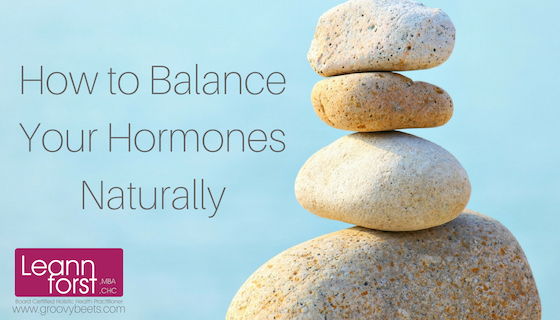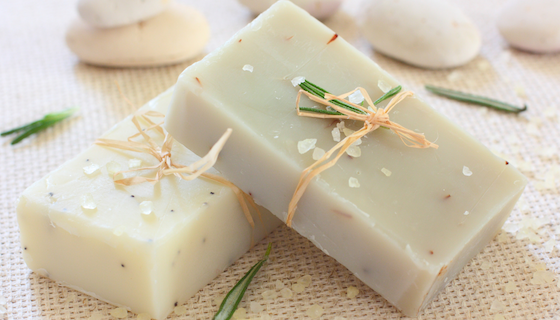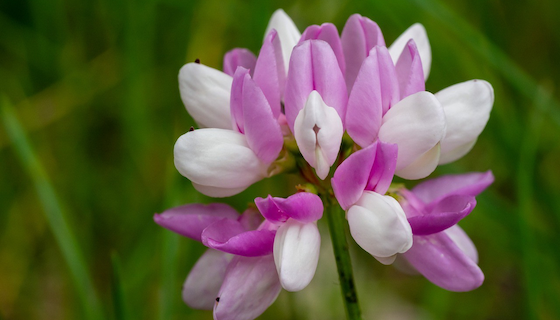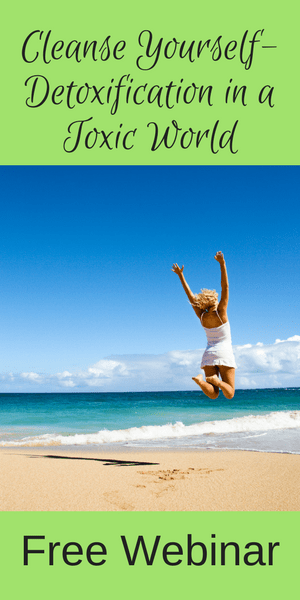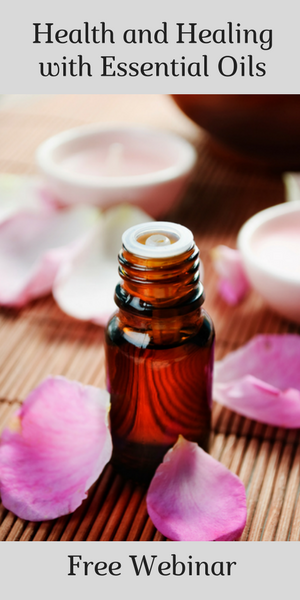Strategies to Achieve Natural Hormone Balance
Our bodies are complex. But they are also amazing, in that they are strong and resilient and are designed to repair themselves naturally.
So why do so many people suffer from chronic health issues and disease? Well there are a few explanations, but one has to do environmental toxins that affect how our endocrine system works.
What are Hormones?
Hormones are chemical messengers that transfer signals to and from cells in your body. They are created by your endocrine glands and secreted into the bloodstream. Hormones regulate every cell, tissue, organ and function of your body.
The glands that create the over 50 different types of hormones are:
- Hypothalamus
- Parathyroid
- Thymus
- Pancreas
- Thyroid
- Adrenal
- Pituitary
- Pineal
- Ovaries (for women), testis (for men)
What Can Affect Our Hormones?
Endocrine disruptors do exactly what it sounds like they do. They are chemicals that interfere with our endocrine system and hormones. Endocrine disruptors have been linked to tumors, birth defects and other developmental disorders in children. Did you know that babies are now born with up to 200 different chemicals in their umbilical cord due to the mother’s toxicity level when she is pregnant?
Examples of endocrine disruptors:
- BPA – in cans and all different types of plastic.
- Dioxins – produced by commercial and industrial waste, found in plants, water and air.
- Atrazine – a herbicide (banned in Europe), that impacts our marine and wildlife (which we consume).
- Perchlorate – a chemical that has been found in many water supplies, despite being classified as a toxin in some states.
- Fire retardants – a substance that reduces flammability used in things like furniture, building materials, and even baby products.
- Lead – lead was used in paint before 1978 when it was banned for being poisonous.
- Phthalates – a chemical found in vinyl flooring, building materials, and personal care products.
- Arsenic – another known poison, but arsenic can still be found in some environmental sources, like pesticides and pressure-treated lumber.
- Mercury – it’s supposedly “safe” for the rest of us, but pregnant women are told to avoid it. That’s confusing. Avoid it by eating only wild-caught seafood.
- Perfluorinated chemicals (PFCs) – remember that non-stick cookware that was popular years ago? Well they all contained PFCs. And some of you may still be using them.
- Pesticides – you may think that pesticides are only used to keep bugs away from crops. But they are also found in your bug spray, treated wood and some pool chemicals, and even in drinking water.
Another issue is with xenoestrogens – which are endocrine disruptors that increase the amount of estrogen in our bodies (men can be affected too). Xenoestrogens are stored in our fat cells and their build up can lead to health conditions, like cancer, obesity, infertility, early puberty, and diabetes.
Balancing Your Hormones
In the world we live in, it’s almost impossible to avoid all of these endocrine disruptors. But the first thing to do is reduce your toxic burden by eliminating as many chemicals in your food, personal care and cleaning products as you can. Secondly, by incorporating whole foods and hormone-balancing essential oils, you can make a big impact on your hormonal health.
The following foods can help balance your hormones, so you can avoid conditions like weight loss or gain, depression, anxiety, low libido, digestive issues or hair loss:
- Coconut oil
- Avocados
- Ghee or grass-fed butter
- Wild-caught salmon (or other omega-3 fatty acids)
- Green leaf vegetables
- Spices and herbs (including turmeric, garlic, ginger, and cumin)
- Nuts, beans, and seeds
- Organic chicken
- Pasture-raised eggs
Another way to support balanced hormones is with the use of these medicinal-grade essential oils:
Thyme
Thyme oil can support health progesterone levels. If you experience conditions like infertility or depression, it’s likely due to low progesterone and using thyme oil can help.
Clary Sage
The Journal of Phytotherapy Research found that inhalation of clary sage oil can reduce cortisol levels by 36% and improve thyroid hormone levels. Increasing low estrogen levels have also been attributed to the use of clary sage oil; which is beneficial for women dealing with infertility or PMS cramps.
Sandalwood
Considered a natural aphrodisiac, sandalwood is a scent that is often used in perfume and men’s cologne. It also helps support healthy testosterone levels in men and women.
Lavender
One of the most versatile essential oils, lavender is great for relieving symptoms of anxiety or depression from hormone imbalance. And if you’re experiencing any sleep issues, lavender oil can help you relax and drift off to sleep in no time.
To get started with certified pure therapeutic grade essential oils, email Leann@GroovyBeets.com. Leann will create a custom protocol for your specific heath needs and goals.
Ready to get started with essential oils? Click here to learn more. When you work with me, you will receive:
If you have questions, email me Leann@GroovyBeets.com. For more essential oil education, join my free Facebook group here. |
Disclosure: this post contains affiliate links.
 Login
Login